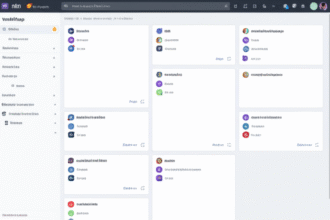The reliability of cloud services is paramount for businesses in today’s digital age. Microsoft Azure, one of the leading cloud service providers, plays a critical role in the IT infrastructure of many organizations. However, outages can have a significant impact on operations and productivity. In this article, we will explore the implications of Azure outages and what they mean for businesses leveraging cloud technologies.
What Are Azure Outages?
Azure outages refer to the events when Microsoft Azure services become unavailable or degraded. These outages can happen due to several reasons, including but not limited to, software bugs, hardware failures, and network connectivity problems. Understanding the nature and frequency of these outages is essential for businesses relying on Azure for their IT operations.
Recent Azure Outages: A Case Study
In recent months, Azure has experienced significant outages that disrupted services globally. For instance, in early 2023, a major outage affected core services like Azure Active Directory and Azure Virtual Machines, impacting thousands of businesses. These events highlight the risks associated with cloud dependency and the cascading effects on IT infrastructure.
The Impact of Azure Outages on Businesses
The impacts of Azure outages can vary widely depending on the severity and duration of the outage. Common repercussions include:
- Service Disruption: Immediate unavailability of applications hosted on Azure, affecting customer service and internal operations.
- Data Loss: Potential risks of data loss during outages, which can lead to further complications, particularly for businesses that rely on real-time data.
- Financial Costs: Outages may lead to significant financial losses due to service level agreement (SLA) breaches and the need to implement mitigation strategies.
- Reputation Damage: Continuous outages can damage a brand’s reputation, leading customers to seek more reliable providers.
Mitigating the Risks of Azure Outages
While Azure’s reliability is generally high, businesses can take proactive measures to mitigate risks associated with outages:
- Implement Redundancy: Utilize multi-region deployments to ensure continuity in the event of a regional outage.
- Regular Backups: Consistently back up critical data to avoid losses during outages.
- Explore Hybrid Solutions: Consider a hybrid cloud approach to maintain control over critical workloads on-premises while leveraging Azure for scalability.
- Monitor and Respond: Use monitoring tools to detect outages promptly and have incident response plans in place to handle the challenges effectively.
Conclusion
In conclusion, while Azure provides robust cloud solutions, outages can have profound implications for organizations. Understanding these implications and preparing accordingly can help businesses manage risks effectively. Stay informed about Azure service status updates and explore best practices for outage preparation to safeguard your IT infrastructure.








